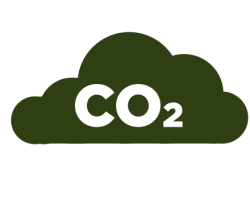Solar power, like any energy resource, has environmental impacts. Generating electricity from solar comes with a significant reduction in greenhouse gas emission, as well as other air pollution. Both solar PV and concentrating solar power have a much smaller life-cycle carbon footprint than conventional power generation.
A growing trend in solar development includes converting unproductive farmland to solar as well as utilizing Brownfields for community-scale projects. Community solar projects are also increasingly implementing pollinator-friendly habitats. Pollinators are critical to the health of our future food supply and already threatened by widespread insecticide and herbicide use in addition to habitat loss from climate change and land development activities. Pollinator-friendly solar sites support healthy pollinator populations with a diverse mix of native grasses and flowering plants.







 The team at Encore Renewable Energy® is proud to be certified as a B Corp, joining over 3,500 other businesses worldwide who also share a commitment to social and environmental performance, accountability and transparency.
The team at Encore Renewable Energy® is proud to be certified as a B Corp, joining over 3,500 other businesses worldwide who also share a commitment to social and environmental performance, accountability and transparency.